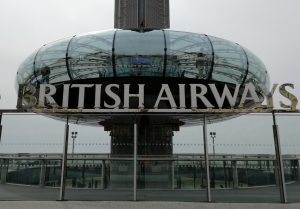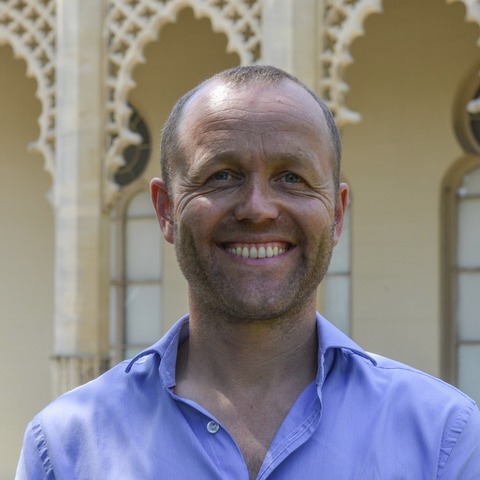Two weeks ago, I sat on the council’s inaugural “i360 Member Working Group”.
The i360 is in the ward – or neighbourhood – that I represent and, having followed its development closely from the outset, I know that if there is one thing we can all agree on, it’s the “Marmite” nature of it.
There seems to be no one who doesn’t have an opinion – and love it or loathe it, we can all agree to disagree.
At this first meeting, the i360 Member Working Group was to consider the request from the i360 to defer the June and December payments owed to the council.
These were due under a repayment plan put in place after the council approved a £36 million loan in March 2014 to make the project possible.
Member working groups are one of the many ways that elected councillors – the members of the council – can really delve deep into an issue.
Only three councillors have been invited to sit on the i360 working group – Labour councillor Carmen Appich and Conservative councillor Steve Bell are the other two – and generally the meetings are held in private.
Crucially, the working group cannot make actual decisions on behalf of the council and the city.
Our i360 working group can digest the reports, meet with the i360 management and ask the questions that need to be asked.
But the idea is that this work helps set the stage for the decisions that need to be taken in our open, democratic committee system.
That first meeting was constructive. Each of us were sent a lot of helpful background information in advance to consider. Despite our different opinions on the i360 itself, there was a shared determination to work constructively together to contribute to the long-term success of the attraction and safeguard the money that’s been invested in it.
However, like all other working groups, it’s down to the public, democratic process to make a decision.
Each working group sits under a formal committee and in this case it’s the council’s Policy and Resources Committee that is charged with the “final say”.
This is the most powerful of the council’s many decision-making committees, all of which hold public, accessible meetings that are broadcast online and allow for public involvement, for example, for a resident to attend and ask a question.

That’s how democracy and transparency work. That’s the theory anyway. This isn’t what actually happened when the Policy and Resources (Recovery) Sub-Committee met last Wednesday (24 June).
This was a meeting of only five councillors – so not much more than the working group and a long way from what could be considered best practice.
The Recovery Sub-Committee is there to focus on how the city recovers from the covid-19 coronavirus crisis.
The i360 has been an issue for a lot longer than this. It shouldn’t have gone to this sub-committee in the first place.
But because it did, a crucial decision about whether to keep deferring the loan repayments owed by the i360 attraction was made without the information they needed to make an informed decision.
No working group minutes, no business plan, no summer trading information, no information on other creditors, no information on the maintenance programme or the health of the structure, no information on the extra costs of dealing with covid-19, no independent analysis of the i360’s post-covid visitor number forecasts and no cashflow forecast (this had been requested by the working group but was not yet available).
How can councillors make an informed decision when the minutes of the group tasked with exploring the issue are not available to them? Nor to those members of the public keen to understand what’s going on?
The i360 Member Working Group is a vital way to understand more about the future of the attraction. But this information needs to be shared more widely so that councillors can take informed, appropriate action.
Members of the working group were asked whether we were happy with the report going to the Policy and Resources Committee, not if we endorsed the recommendations within that report.
Councillors must be free to decide – a very important distinction that seems to have been lost.
We need to encourage broader conversations about the future of the i360, not suggest that a closed, private working group has the final say.
As far as the attraction goes, while the proposal to defer the June repayment was agreed, I and my Green colleagues would like to see the city receive further information before a decision is made about whether to waive December’s repayment too. As a member of the working group, this is what I recommended and what Green councillors raised in committee.
This would give the working group and the council five months to get more information and to really understand the situation before making a decision on whether a further deferral in December is in the best interests of the city.
We would also know by then what impact covid-19 has had on the attraction.
And yet, despite all this, Labour and Conservative councillors judged that they had enough information to agree a deferral of both the June and the December payments, which means the next time the council has any say over the matter is in a year’s time.
And what will the situation be like then? Only time will tell – but an understanding of the role of the members’ working group, and of democratic decision-making, will no doubt be key.
Councillor Tom Druitt represents Regency ward on Brighton and Hove City Council and sits for the Greens on the council’s i360 Member Working Group.












Seems like Cllr Tom Druitt is trying to use his get out of jail free card.I see that Jason Kitcat has left Essex County Council after a couple of years and is holding the second of his Interim posts since leaving last May,the merrygoround continues.
This debacle is not going to go away any time soon.The West Pier Trust and the i360 should be wrapped up and put into the hands of an experienced operator.
Covid19 will no doubt be used as an excuse but the i360 was heading for big trouble long ago but it would appear egos got the better of all involved.
Perhaps Tom would also like to condemn decisions such as the Old Shoreham Road temporary cycle lane extension, or the Glyphosate weedkiller ban, instigated with support from Green councillors?
Also, any chance of supplying details of the secret election agreement between Labour and Greens meaning these decisions get made “behind closed doors”?
Do they know the meaning of the word “hypocrisy”?
Some classic whataboutery here Peter. To the matter at hand, Pruitt’s reasoning seems pretty sound to me. It sounds like the councillors just wanted to kick the embarrassing mess into the long grass.
It would have to be a jungle to try and make this disappear.By the way it is Druitt.
By the way Cllr Druitt the Headline says it all but perhaps that should have been the priority from the moment the Council thought about the funding.
Just remember that it was the Green and Conservative groups that pushed through the i360. J Kitcat was on the board of Coast to Capital when the money was loaned. A conflict of interest if ever there was one. Kitcat wanted the tower because he knew the Greens were going to be out of power and wanted to leave a poisoned chalice for Labour. Former Conservative leader Geoffrey Theobolds Dad was behind the Brighton Centre. Geoff just felt he had no tangible legacy like his Daddy. The people of the city are left to pick up the pieces 😡